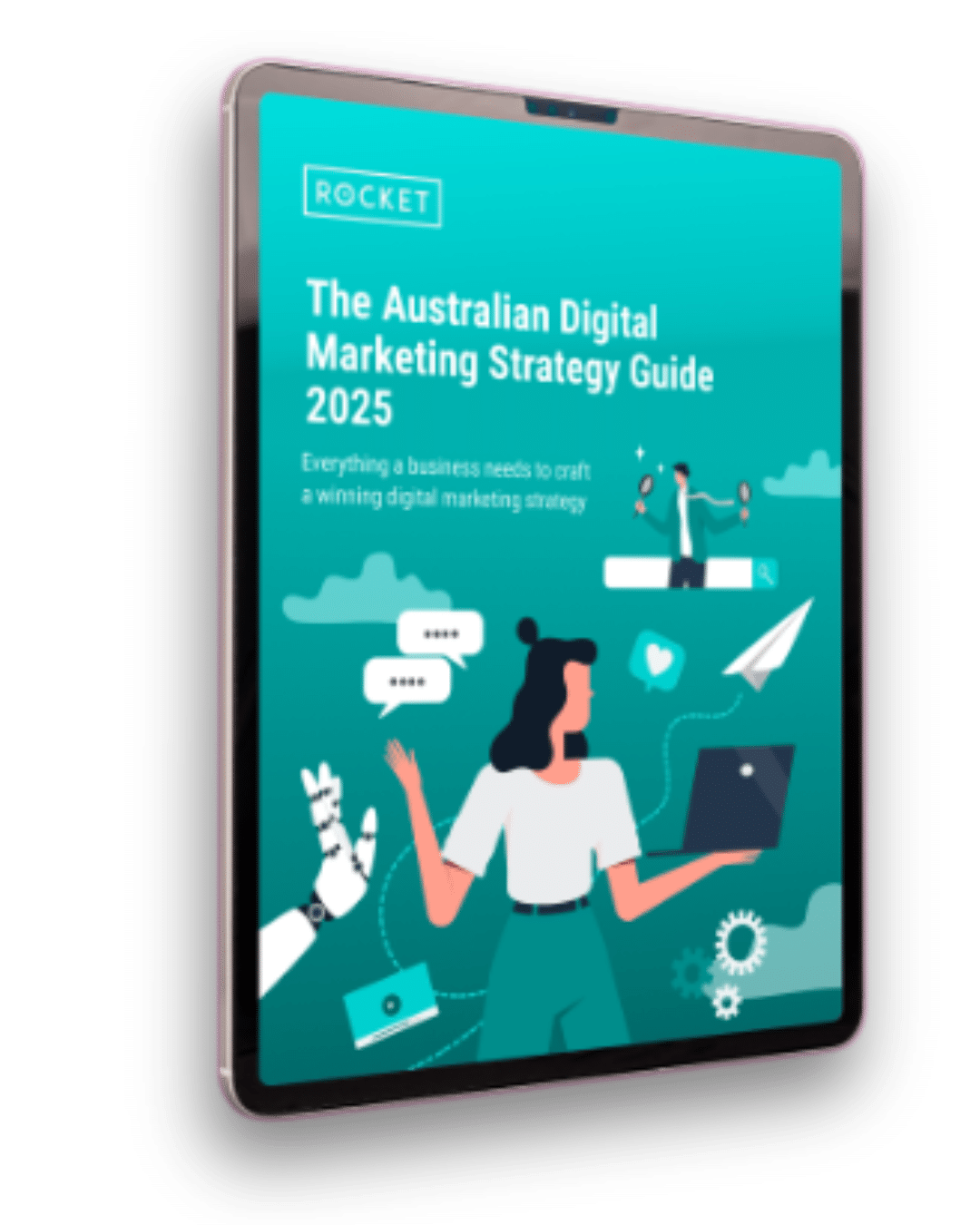Why is it So Challenging to Generate Quality Leads in B2B Marketing?
If you’re an in-house marketing manager under pressure to deliver leads month after month, regardless of the season or economic climate, you’re not alone.
It’s 2025 and yet, many businesses still view digital marketing through a simple lens: a dollar-in, dollar-out exercise.
For many marketers, not being able to prove ROI on a last-click attribution basis means culling campaigns or channels they know are critical to sustained (and affordable) success. It’s frustrating, we get it.
This ROI-based decision-making mindset made sense when digital marketing was more straightforward, but digital marketing today is significantly more complex. While data and analytics remain critical, they can no longer be the sole factor in decision-making.
Here’s why B2B marketing has become so much harder in 2025.
Why is B2B marketing so tough?
1. The 95:5 Rule: Most buyers aren’t ready to buy
One of the toughest realities of B2B marketing is that 95% of potential customers aren’t in the market to buy right now. Research published by experts at The B2B Institute at LinkedIn shows that only 5% of B2B buyers are in-market at any given time. This means the vast majority of people within your target market aren’t going to convert to new leads now or anytime soon. And no matter how great your pitch is, you can’t persuade someone to make a purchase if they don’t have a pressing need for your product or service.
Today’s marketing is tomorrow’s sales. The key is to play the long game, building brand recognition and staying top-of-mind for when that buyer does enter the market. It’s about using tactics like ads, social, email, events, thought leadership, and the like, even when you can’t show that they’ve generated immediate leads and revenue in standard attribution models. Your efforts might seem like they are going nowhere in the very narrow eyes of Google Analytics. Still, they’ll pay off when your perfect customer is ready to make a buying decision, and you’ve become the most trusted brand in their eyes. Success in B2B marketing is about playing the long game, now more than ever.

2. Attribution is more difficult than ever
When your prospect is finally ready to make a purchase (or speak to a company like yours), don’t be surprised if they Google you and click on a brand ad or organic listing to find you. As much as this action has only happened because of all the excellent long-term nurturing you’ve done via your marketing, Google Analytics will of course show the conversion as being attributed to something like organic search or a paid campaign as this is the last thing they did before converting. It’s impossible for a standard data and analytics platform to understand all the work you did to get them to this place. This is not to downplay the power of SEO or paid campaigns, both are important parts of most B2B campaigns.
One of the greatest challenges in modern B2B marketing is tracking the true source of a lead. Digital platforms have never truly provided the clear, reliable data about a customer journey that most have assumed they do. Customer journeys are simply too complex and so many of the things that influence us are simply impossible to track (think referrals between real people, ads we see and don’t click, private sessions, using different devices and not being logged in, content forwarded to us by others, real-world relationships and events and so much more). However, as privacy measures have tightened — think Apple’s email privacy protection murking email open rates and data limitations in Google Ads blocking details on converting keywords and channels — it’s becoming even harder to pinpoint what’s driving conversions. The data we see continues to have an even greater level of inaccuracy built in.

Above: HubSpot's feature offering an 'adjusted open rate' for emails to balance the lack of data from Apple.

Above: Recent screenshot from HubSpot demonstrating data limitations of a Google Ads campaign.
The reality is that marketing is a multi-touch, multi-channel puzzle that can’t be neatly attributed to one specific action or shown in one neat Google Analytics dashboard. The longer and more complex the buyer journey, the more true this is.
This murky data can make it harder for you to justify spend or prove the effectiveness of your campaigns. However, by taking a holistic view of your metrics, you can still make data-informed decisions.
3. Multiple stakeholders = Multiple challenges
B2B purchases typically involve multiple stakeholders in a buying committee with varying priorities, interests, and pain points. From the finance team to the end users, everyone involved in the decision-making process has their own agenda. This makes it difficult to craft messages that resonate with everyone.
The ad creative process is challenging because you need to cater to all of these stakeholders while still presenting a unified message. Consider fleshing out the buyer journey for each persona in a typical buying committee to understand their specific challenges and develop messaging that resonates with them.
4. Long sales cycles
B2B sales cycles are notoriously long. Depending on the product or service, it could take weeks, months, or even years to close a deal. This extended timeline means leads may forget when or how they first interacted with your brand. If you’re not staying visible throughout the entire journey, you risk losing momentum.
Moreover, long sales cycles can lead to complications like team changes at your prospect’s company, shifting priorities, or even budget cuts. The key is to maintain consistent engagement, adapting your messaging as needed to match the buyer’s evolving needs and concerns. This could be by publishing and distributing thought-leadership content, improving your email marketing, hosting and attending virtual and in-person events among other tactics.
Where to from here
Getting cut-through in B2B marketing in 2025 isn’t easy, but understanding these challenges can help you adapt your marketing strategy to be more effective at lead generation. At Rocket, we’ve helped scores of B2B businesses generate genuine marketing results with award-winning digital marketing campaigns.
If you need a B2B marketing expert to sense-check your strategy and give you a second opinion, Rocket’s digital marketing team can help. Get in touch!
About the Author

Eshita is the Head of Marketing at Rocket Agency. She is also the Email Strategist for client projects. Eshita has been a finalist at the B&T Women In Media awards in the marketing category for her success in scaling Rocket’s own marketing efforts.
Previously, Eshita was the Marketing Manager at SalesITV where she was responsible for executing the marketing strategy and operations focused on lead generation, lead nurturing and sales conversion for a training business offering a saas product.
She has in-depth experience in monetising owned media channels via email, CRM, copywriting, public relations, as well as scaling and running successful online webinars. What’s more, Eshita’s experience working closely with sales teams has enhanced her skillset as a proficient marketer that achieves impressive results.
Stay Ahead in Digital Marketing
Join 20K+ Marketers Who Get the Inside Scoop
Other Articles you might be interested in…

The Australian
Digital Marketing Strategy Guide
Everything an in-house marketer needs to craft a winning digital marketing strategy.








































